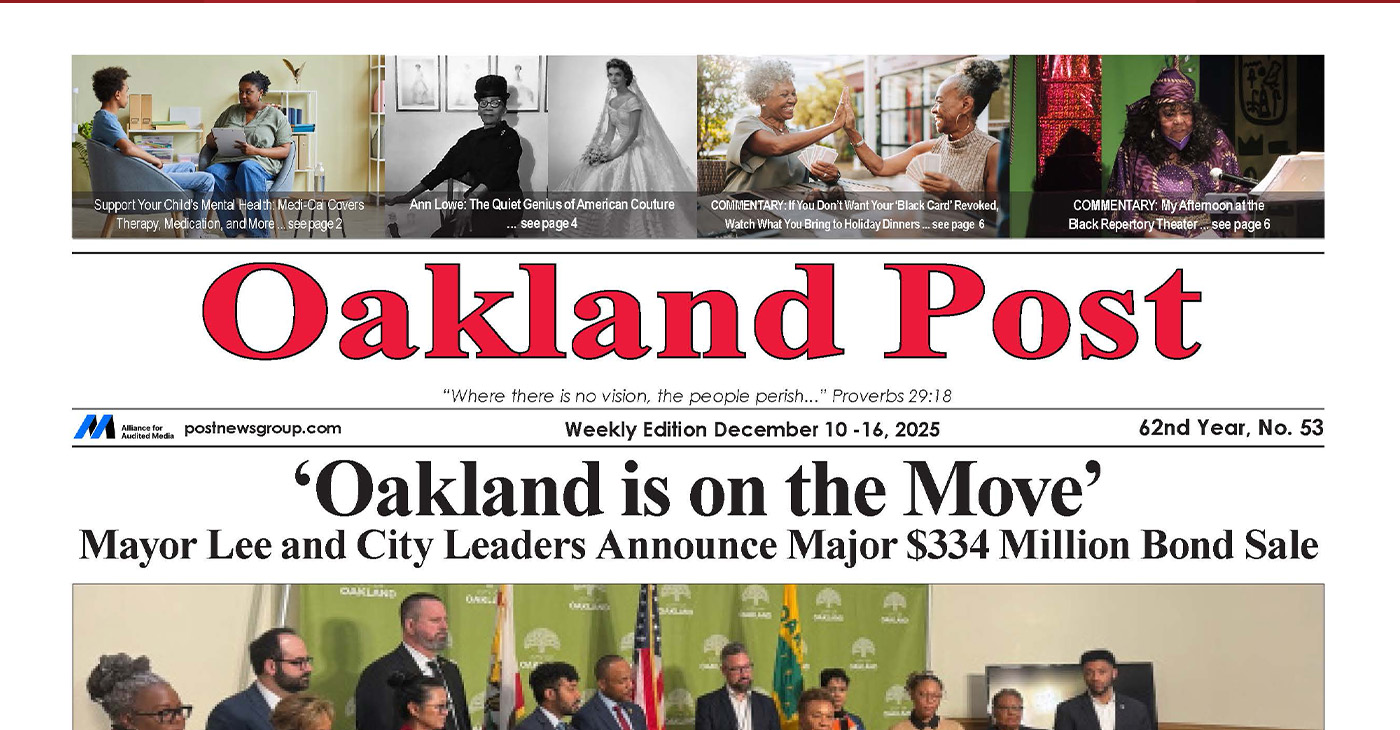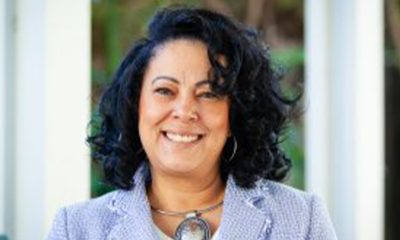Business
Closing Education Gap Would Boost U.S. Economy

Attorney General Loretta Lynch speaking at NAACP convention in Philadelphia
(Photo by Abdul Sulayman/Philadelphia Tribune)
By Freddie Allen
NNPA Senior Washington Correspondent
WASHINGTON (NNPA) – Men of color would earn $170 billion more a year, if they reached the same education level as White men, according to a new White House report.
The report examined “opportunity gaps facing youth of color” and found stunning correlations between the educational and employment success of young men of color and how that success can directly impact the national economy.
Not only would closing the education attainment gap result in higher annual earnings for men of color 25-64 years-old, it would also increase the gross domestic product, the value of the production of goods and services, by 1.8 percent in the United States. The Bureau of Economic Analysis reported that GDP decreased by an annual rate of 0.2 percent in the first quarter of 2015.
The high school graduation rate for Black students is 17 percentage points lower than their White classmates and only “28 percent of Blacks have a college degree by their late 20s, compared to nearly half of White men,” the report said.
The report said that youth of color encounter a number of barriers to opportunity at higher rates compared to their White peers.
“For example, while 20 percent of all children under age 18 live in poverty, 38 percent of Black children and 30 percent of Hispanic children live in poverty, compared to 11 percent of non-Hispanic White children,” stated the report.
Poor students often don’t have access to early childhood education, increasing the likelihood that they will start school at considerable disadvantage to their more affluent peers. When young students fall behind in their reading skills, it makes it harder for them to catch up to their peers in later grades and increases the chances that they will drop out.
When young Black men disconnect from school, they are more likely to connect to the criminal justice system at considerable expense to the rest of society.
“The cost of incarceration is far substantially higher than investing in education or other programs to increase opportunity, even before one takes the returns to the investments into account,” the report said. “The cost of incarceration for a single juvenile is over $100,000 – twice as high as tuition at the most expensive college in the country or a year of intensive mentoring.”
And even though crime is down in recent years, spending on corrections at the federal, state and local level is $80 billion, according to President Obama.
A history poverty, lack of access to early childhood education and early interaction with the criminal justice system can follow a young Black man deep into adulthood and contribute to an early death or a lifetime of missed employment opportunities and lower rates of employment compared to White men.
“Even when there is little difference in the likelihood of committing a crime, individuals of color are much more likely to be arrested,” stated the report. “For example, a black individual is nearly four times as likely as a white individual to be arrested for marijuana possession, even though black and white individuals reported using marijuana at similar rates in 2010.”
The report continued: “In 1984, the majority of State and Federal prisoners were White. In 2011, the majority of the more than 1.5 million prisoners were minorities, including 930,000 prisoners who were Black or Hispanic (61 percent).”
“Among adults 16 and older, Black men are nearly 15 percentage points less likely to be employed than White men,” stated the report.
And because the labor force participation rate only tracks people who are either employed or looking for work, more than 1 million Black men languishing in American prisons remain unaccounted for in the labor market artificially narrowing the employment chasm between Blacks and Whites until they return home.
“The relationship between economic opportunity and crime is not wholly clear-cut. For instance, crime fell throughout the most recent recession. Nevertheless, experience of past decades suggests that improving economic opportunity can also help lower crime rates,” the report said.
The report noted that the Chicago-based Becoming a Man (BAM) program has achieved success at steering disadvantaged young men away from the criminal justice system by taking a different approach
Rather than offering targeted job opportunities, the report said that BAM, which primarily serves young Black and Latino men, teaches their members how to make better decisions “in high-stress situations through in-school sessions focused on making participants more aware of their automatic responses and on thinking about the appropriate response to the situation at hand.”
BAM not only reduced violent crime arrests among program participants from 2009-2010, the young men also got better grades. An evaluation of the program during the 2013-2014 school year showed a 31 percent decline in the likelihood of arrests for BAM members.
The White House report said that scholarships and one-on-one coaching can also help low-income students graduate from college.
The high costs of mass incarceration, coupled with the increased awareness about the militarization of local police forces and the controversial practices of the for-profit prison industry have driven lawmakers to reconsider tough on crime policies in favor of smarter sentencing guideline, restorative justice and community-based rehabilitation programs.
During her keynote address at the NAACP’s annual convention in Philadelphia, United States Attorney General Loretta Lynch noted the launch of the Smart on Crime initiative and it’s impact on mandatory minimum sentencing and investments in rehabilitation and reentry programs.
“The early results of these efforts have been extremely promising,” said Lynch. “I am not just hopeful, but excited about where these reforms will lead us in the years to come.”
Making the criminal justice system more efficient, more effective and more fair on the federal level will require broader reform efforts bipartisan support in Congress, said Lynch, adding that those efforts have to involve repairing the relationship between young people and law enforcement.
“Ultimately, we need children to see possibilities for themselves beyond the cycle of criminality and incarceration that has too often become a tragic and familiar fact of life,” said Lynch. “America is a land of second chances – but it must also be a land where we give opportunities to young people who haven’t gotten a chance at all.”
Activism
Oakland Post: Week of December 10 – 16, 2025
The printed Weekly Edition of the Oakland Post: Week of – December 10 – 16, 2025

To enlarge your view of this issue, use the slider, magnifying glass icon or full page icon in the lower right corner of the browser window.
Alameda County
Seth Curry Makes Impressive Debut with the Golden State Warriors
Seth looked comfortable in his new uniform, seamlessly fitting into the Warriors’ offensive and defensive system. He finished the night with an impressive 14 points, becoming one of the team’s top scorers for the game. Seth’s points came in a variety of ways – floaters, spot-up three-pointers, mid-range jumpers, and a handful of aggressive drives that kept the Oklahoma City Thunder defense on its heels.

By Y’Anad Burrell
Tuesday night was anything but ordinary for fans in San Francisco as Seth Curry made his highly anticipated debut as a new member of the Golden State Warriors. Seth didn’t disappoint, delivering a performance that not only showcased his scoring ability but also demonstrated his added value to the team.
At 35, the 12-year NBA veteran on Monday signed a contract to play with the Warriors for the rest of the season.
Seth looked comfortable in his new uniform, seamlessly fitting into the Warriors’ offensive and defensive system. He finished the night with an impressive 14 points, becoming one of the team’s top scorers for the game. Seth’s points came in a variety of ways – floaters, spot-up three-pointers, mid-range jumpers, and a handful of aggressive drives that kept the Oklahoma City Thunder defense on its heels.
One of the most memorable moments of the evening came before Seth even scored his first points. As he checked into the game, the Chase Center erupted into applause, with fans rising to their feet to give the newest Warrior a standing ovation.
The crowd’s reaction was a testament not only to Seth’s reputation as a sharpshooter but also to the excitement he brings to the Warriors. It was clear that fans quickly embraced Seth as one of their own, eager to see what he could bring to the team’s championship aspirations.
Warriors’ superstar Steph Curry – Seth’s brother – did not play due to an injury. One could only imagine what it would be like if the Curry brothers were on the court together. Magic in the making.
Seth’s debut proved to be a turning point for the Warriors. Not only did he contribute on the scoreboard, but he also brought a sense of confidence and composure to the floor.
While their loss last night, OKC 124 – GSW 112, Seth’s impact was a game-changer and there’s more yet to come. Beyond statistics, it was clear that Seth’s presence elevated the team’s performance, giving the Warriors a new force as they look to make a deep playoff run.
Activism
Oakland Post: Week of November 26 – December 2, 2025
The printed Weekly Edition of the Oakland Post: Week of November 26 – December 2, 2025

To enlarge your view of this issue, use the slider, magnifying glass icon or full page icon in the lower right corner of the browser window.
-

 Activism4 weeks ago
Activism4 weeks agoOakland Post: Week of November 12 – 18, 2025
-

 Activism3 weeks ago
Activism3 weeks agoIN MEMORIAM: William ‘Bill’ Patterson, 94
-

 Activism4 weeks ago
Activism4 weeks agoHow Charles R. Drew University Navigated More Than $20 Million in Fed Cuts – Still Prioritizing Students and Community Health
-

 Bay Area4 weeks ago
Bay Area4 weeks agoNo Justice in the Justice System
-

 #NNPA BlackPress3 weeks ago
#NNPA BlackPress3 weeks agoBeyoncé and Jay-Z make rare public appearance with Lewis Hamilton at Las Vegas Grand Prix
-

 #NNPA BlackPress3 weeks ago
#NNPA BlackPress3 weeks agoLewis Hamilton set to start LAST in Saturday Night’s Las Vegas Grand Prix
-

 Activism3 weeks ago
Activism3 weeks agoOakland Post: Week of November 19 – 25, 2025
-

 #NNPA BlackPress4 weeks ago
#NNPA BlackPress4 weeks agoThe Perfumed Hand of Hypocrisy: Trump Hosted Former Terror Suspect While America Condemns a Muslim Mayor

















































